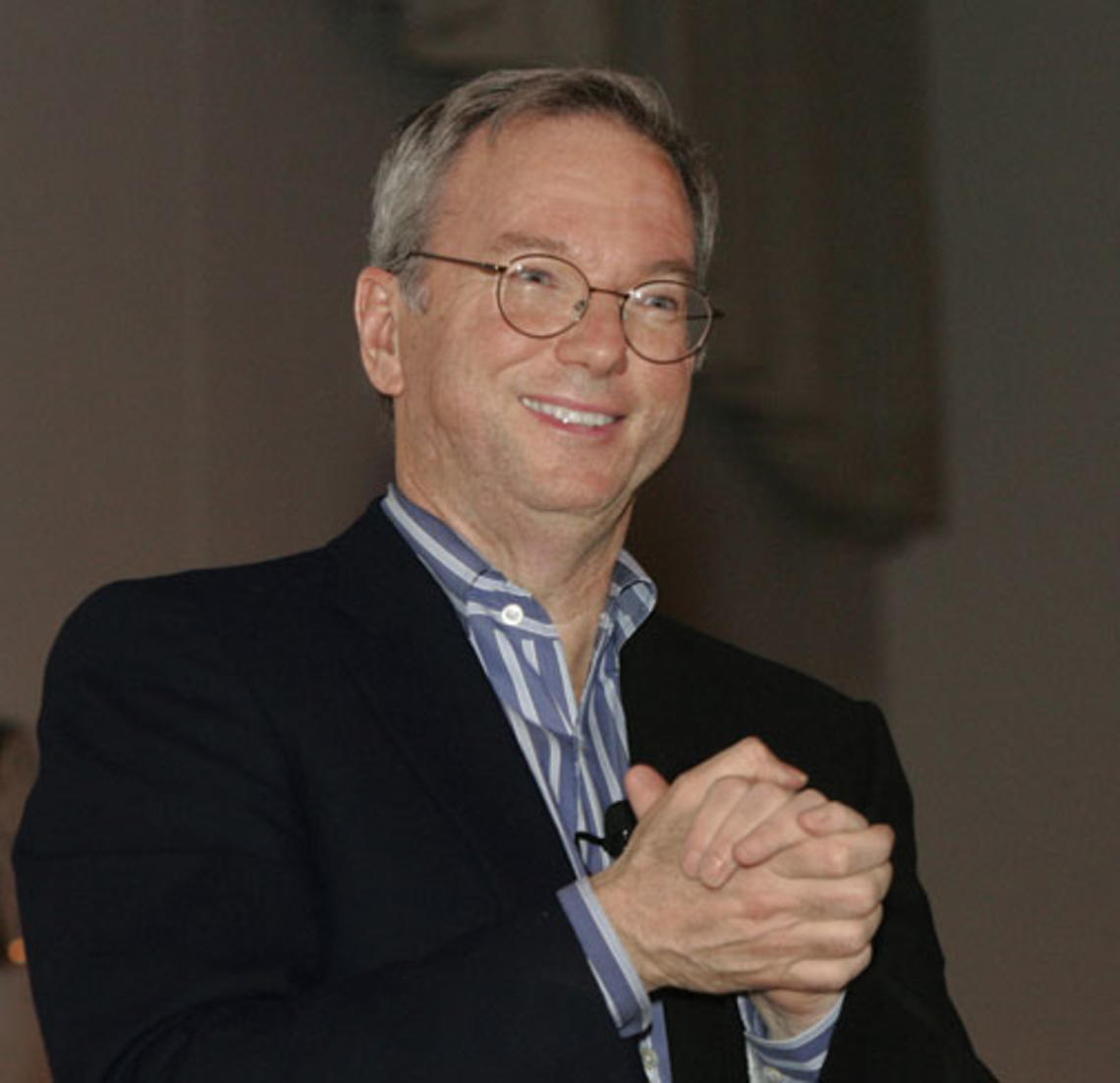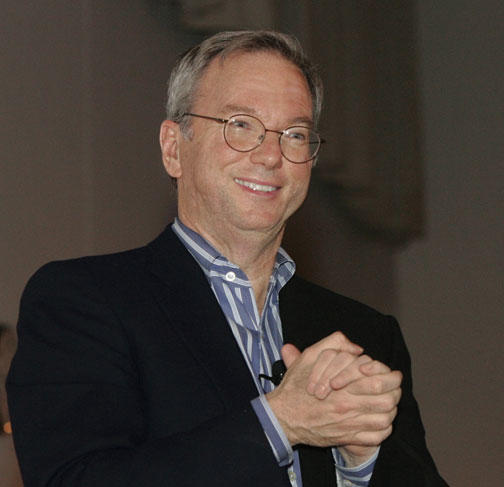 Eric Schmidt ’76
Eric Schmidt ’76
In the next decade, artificial intelligence will predict disease outbreaks and financial crises, virtual reality will enable us to be in two places at once, and driverless cars will become part of everyday life, Google executive chairman Eric Schmidt ’76 told an audience that filled McCosh 50 May 10.
Schmidt was the keynote speaker for Princeton’s Turing Centennial Celebration, three days of lectures and discussion to mark the 100th anniversary of the birth of Alan Turing *38. Scientists and mathematicians from around the world convened to commemorate the man who developed the idea for the stored-program computer.
“While ostensibly about the past, this event is really about the future,” said computer science professor Robert Sedgewick in his introduction of Schmidt, a former University trustee. “Computer science has completely transformed the world in the past few decades, and is poised to do so again.”
Schmidt agreed, describing the opportunities that he said technology soon will allow. “There is a quote from Turing that I like, ‘Machines take me by surprise with great frequency,’” he said. “That’s my life every day. And I think it is true of most people in the world today.”
Perhaps even more important is the interconnectedness that such technology will allow. The challenge, he said, will lie in connecting the majority of the world’s population for whom “the digital revolution has not arrived” because of a lack of infrastructure or because of war or corrupt governments. The solution, he said, may be provided by new technologies and by diffuse, “cobbled-together networks” driven by cell phones.
“This network that this community is building is more than a set of objects. It’s more than a set of data,” Schmidt said. “I like to think of it evolving into a collective intelligence and a global consciousness.”
While that journey will not be easy, he said, he remains optimistic. “What is the most humbling for me is the sense that we’re just beginning, and I say you are just beginning, to have something of the boundless capacity for the connected humanity that we will create,” he said. “The world is full of extraordinarily gifted people, and we’re getting them connected.”
The Latest
See allBook Club.
Join and Read With Us.







